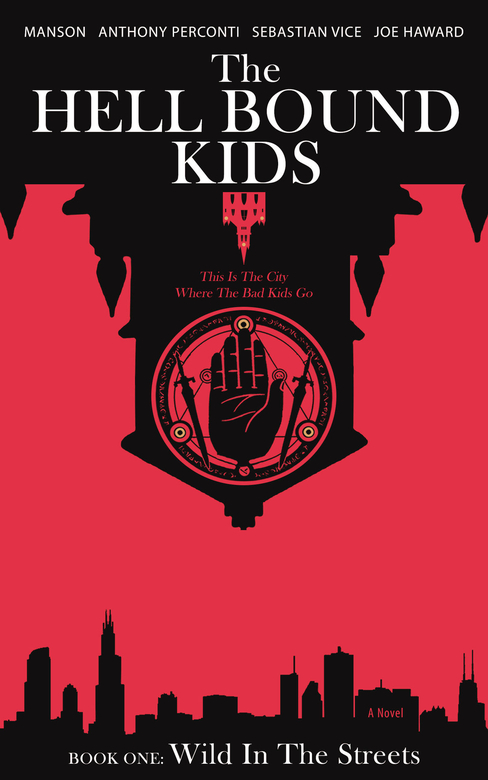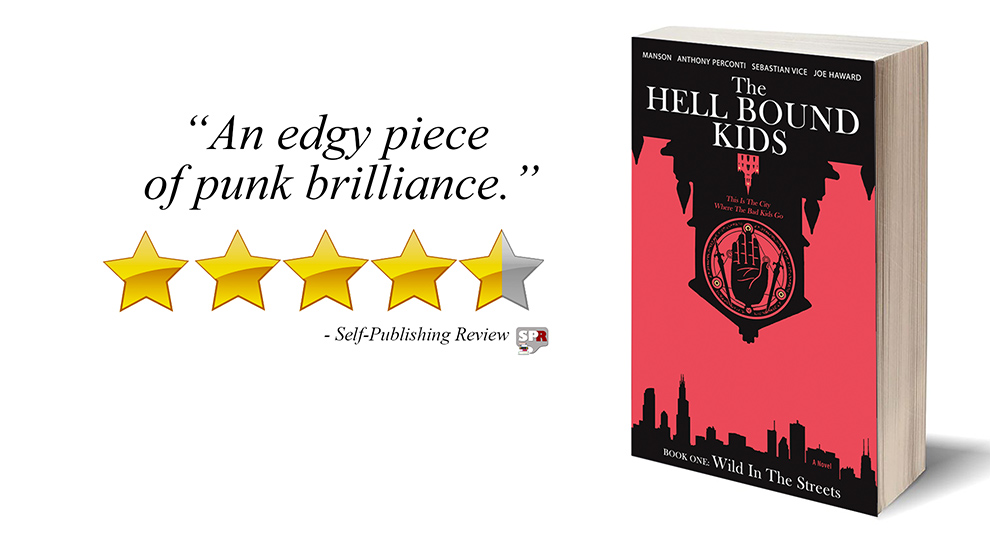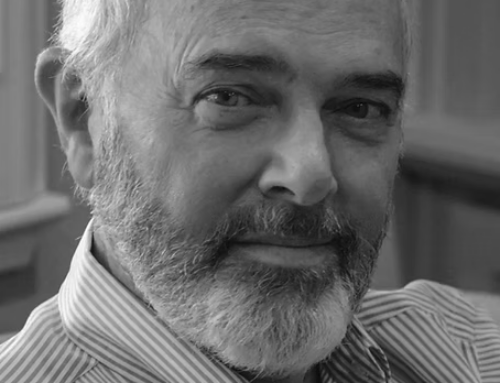 Manson loves and hates everyone equitably. Though she’ll read just about anything, she enjoys weird shit like Hunter S. Thompson. She also likes crime fiction, the occult, horror, transgressive, science fiction, and dark fantasy.
Manson loves and hates everyone equitably. Though she’ll read just about anything, she enjoys weird shit like Hunter S. Thompson. She also likes crime fiction, the occult, horror, transgressive, science fiction, and dark fantasy.
Anthony Perconti lives and works in the hinterlands of New Jersey with his wife and kids. He enjoys well-crafted and engaging stories from across a variety of genres and mediums. His articles have appeared in several online venues as well as some indie press magazines such as Three Crows Magazine, Grimdark Magazine, Dark Matter Magazine, and Pulp Modern. He can be found on Twitter @AnthonyPerconti.
Sebastian Vice is the founder of Outcast Press, devoted to transgressive fiction and dirty realism. He writes a regular column for A Thin Slice of Anxiety called “Notes Of A Degenerate Dreamer,” and has poetry and short fiction published in Punk Noir Magazine, A Thin Slice Of Anxiety, Outcast Press, Terror House Magazine, and Bristol Noir. His flash piece “One Last Good Day” was nominated for Best Of The Net 2021.
Joe Haward is an author, poet, and heretic. As a freelance journalist, his work challenges religious and political corruption. Writing horror, noir, and transgressive fiction and poetry, his work can be found in various places. His debut poetry collection, Heresy (Uncle B. Publications) drops in 2022. Find him on Twitter @RevJoeHaward.
Jason Duke is a U.S. Army, Iraq War veteran. He is the owner of No Sell Out Productions, an indie publisher of science fiction, fantasy, horror, crime, and transgressive literary and mainstream fiction. Born and raised in Arizona, he writes about the good, the bad, and the ugly of his Southwestern culture, as well as his experiences in the military and Iraq.
Why did you want to write a book?
MANSON: Because it’s fun. You get to use your imagination; you get to create whatever you want only limited by your imagination.
ANTHONY PERCONTI: I was invited by editor Jason Duke to contribute to this project. I’m old enough to remember reading those wonderful Thieves’ World and Liavek paperbacks back in the day. The prospect of several writers working in a shared world/universe was just too good to pass up.
 What do you think are the main pitfalls for indie writers?
What do you think are the main pitfalls for indie writers?
MANSON: Self-doubt. Trying to overcome that nagging inner critic. Nothing ever seems good enough for it, and just when I think I do have something good enough to appease the little beast, it wants me to kill the darling.
ANTHONY PERCONTI: I’m no publisher, but my guess is that there is just so much competition in the world of indie publishing. That it is difficult for writers to get their books in the hands of readers. With so many options, how does one’s specific work get noticed?
What tips can you give other authors looking to self-publish?
JASON DUKE: Don’t quit. Don’t give up. Never give up. Like the Journey song, “Don’t Stop Believin’.'” That’s the most important advice.
The second most important is to write, and learn everything you can about the craft.
The third most important is to learn everything you can about the business of writing, especially if you self-publish, i.e. the tools of marketing and selling your work, such as Goodreads. BookBub is another good one.
Be willing to invest money. Easier said than done (especially if you’re a broke starving artist like most). Nonetheless, you gotta spend money to make money.
With so many thousands on thousands of self-published works every year, being piled onto already preexisting numbers, that’s a whole lot of competition you’re up against. If you can’t get your message out and set your work apart, then from a business side, all you will do is toil and struggle.
Unless you’re some major influencer on the likes of Twitter or Instagram, social media will only sell so many books, mainly to your (small) clique of most loyal friends; because how many of those 2,000-5,000 followers on Twitter do you really interact with, and of the ones you interact with, how many are buying your books? I’d wager it’s a tiny fraction.
Look to other tools, other methods, to market and sell, which will require money. You gotta spend money to make money. But be wise in how you spend it. Be wise like Solomon.
One more thought on the matter: the notion “cream rises to the top” is only partly true anymore. Unfortunately, author identity plays an increasingly more prominent role nowadays (so if you have that racket going for you – good for you!). Yet the mob is fickle. To show partiality is not good, but for a piece of bread, a man will do wrong.
What was your steepest learning curve during the publishing process?
ANTHONY PERCONTI: I’m primarily a non-fiction writer. When Jason asked me to contribute, it was a brand new experience for me. I’m a novice in this regard, so there certainly was a learning curve. Jason provided some very constructive editorial feedback. My goal was to write an entertaining story, first and foremost. My story, “La Madre De Los Dolores,” chapter fifteen, is my homage to street level and pulp fiction heroes. Think The Shadow, Elektra, White Tiger, Daredevil, Moon Knight, and The Question. I certainly hope that readers will find a certain affinity with La Madre, to those above-mentioned characters.
As a writer, what is your schedule? How do you get the job done?
ANTHONY PERCONTI: If I’m writing a piece, I try and get some words down on a daily basis, usually after my work and family responsibilities are through. I don’t have a daily word target, per se. I just try and be consistent.
How do you deal with writer’s block?
MANSON: I grab it by its short and curlies, spin it around, and give it a big kick in the ass…and when that inevitably doesn’t work I drink more hard liquor.
ANTHONY PERCONTI: What works for me is stepping away for a while and focusing on anything but writing. Taking long walks/hikes and reading (as opposed to writing) are particular favorites. Sooner or later, ideas pop into my head.
Tell us about the genre you wrote in, and why you chose to write this sort of book.
JASON DUKE: It’s said that art imitates life…and with crime (particularly murder rates) at record-breaking levels in the U.S., in the past few years there’s been plenty to imitate.
Seems a lot of the perps are gun-toting young people. So our idea was to combine all the kids and crime into a single hellish city that was seemingly infinite in size and scope, and from which there was no apparent escape.
Of course, it’s more complicated than that; and it’s messy.
The Kids aren’t just cardboard cutouts. They have their (misguided) reasons and motivations for doing what they do. You and I may not agree with them (or maybe you do).
Add into the mix the dichotomy of the haves and have nots – the ever-widening gap of influence, power, and control in which a small privileged elite have over the majority; an elite that will stop at nothing to maintain the status quo and keep themselves in power…and that is the recipe for The Hell Bound Kids where the idea for our authors comes from.
ANTHONY PERCONTI: My contribution to The Hell Bound Kids is a short story titled, “La Madre De Los Dolores.” This is my blatant homage to street level vigilante characters such as The Question, The Shadow, and to a lesser degree, the fumetti neri character of Diabolik. This was my first attempt at writing fiction. I would have to say the process of writing the entire short story was daunting at first. Could I actually pull this off? I usually write various types of non-fiction and am quite comfortable in that modality. But once I got into the groove and in that particular mindset, things moved apace. Jason Duke’s feedback and his editorial nip/tucks certainly gave the piece a better flow.
Once I came up with a plan, I enjoyed creating the character and her interactions with the overseers of Punk City. Manson’s city is a ruthless and brutal place. Let’s just say that the persons that La Madre engages with are certainly not exemplars of humanity (and that’s putting it mildly). I had a great time in channeling such creators as Andrew Vachss, Denny O’Neil (and penciler Denys Cowan), Brian Michael Bendis, Greg Rucka, and various others.
There wasn’t much research involved in writing my story. However, I am thankful in being part of this project, with such a talented group of people. Manson has created a dark and compelling world that to my mind, recalls the take no prisoners, old school punk aesthetic works of John Carpenter and Walter Hill from back in the day.
Who are your biggest writing inspirations and why?
ANTHONY PERCONTI: Oh, man. Where to begin? Some favorites are Michael Moorcock, Andrew Vachss, Joe R. Lansdsale, Walter Mosley, Jorge Luis Borges, Gene Wolfe, Italo Calvino, Robert E. Howard, and Clark Ashton Smith.
How did you start your writing career?
MANSON: With a lot of prayer. As much as I’m filled with self-doubt, I’m also a gal of great faith and belief that helps get me through the doubt, like a doubting Thomas. But I suppose it all started as a reader. I love reading horror, crime, and dark fantasy, and researching the occult. It presented me with what I felt were really great insights, ideas, and possibilities that I began writing down and expanding on into stories and then of course full novels.
What are your plans now your book is published?
JASON DUKE: We’re currently working on an interactive fiction crime and horror choice-based game called “The Hell Bound Kids 2: The Architect,” which will allow the reader to actively participate and explore Punk City and the world of The Hell Bound Kids, then we will continue the HBK series with another ebook and paperback (technically the third in the series) tentatively titled “Beneath The Nightmare City” which picks up immediately where the first book leaves off.
Author Links
Get an Editorial Review | Get Amazon Sales & Reviews | Get Edited | Get Beta Readers | Enter the SPR Book Awards | Other Marketing Services























Leave A Comment